Good nightpublished at 19:45 BST 6 April 2020
That's all from us for today.
Join us again tomorrow for the latest developments on the coronavirus pandemic and how it is affecting Scotland.
It has been confirmed that a health care worker from the West Dunbartonshire area has died with Covid-19
Scotland's chief medical officer Dr Catherine Calderwood resigns after making two trips to her second home during the lockdown
First Minister Nicola Sturgeon said she had a long conversation with the top medic before the decision was made
A total of 222 people in Scotland have died after testing for Covid-19
The Queen tells the UK: "Together we are tackling this disease."
Prime Minister Boris Johnston, who has Covid-19, is admitted to hospital
BBC Scotland News
That's all from us for today.
Join us again tomorrow for the latest developments on the coronavirus pandemic and how it is affecting Scotland.
 Douglas Fraser
Douglas Fraser
Scotland business & economy editor
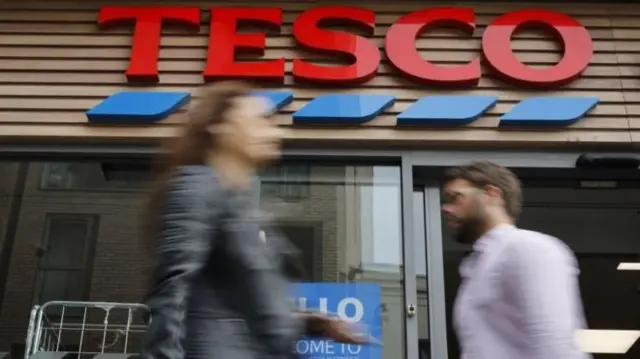 Image source, Getty Images
Image source, Getty ImagesTesco is in discussions to build shops to provide for NHS staff and others working at temporary clinics for the treatment of patients with Covid-19.
Yesterday, it began constructing one at the Nightingale Hospital in Birmingham, which should be open next week.
The food retail giant has also removed limits on the number of items customers can buy, brought in to handle a surge in panic buying and hoarding.
The only remaining items limited to three per customer are toilet rolls and paper goods, household and personal cleaning products, including hand sanitisers, packets and tins of food, including pasta and rice, fresh eggs and home baking.
Other retailers have also been relaxing their rules on multi-buys over recent days.
Tesco is among the retailers now limiting the number of people from each household allowed to enter its shops, it is limiting entry to a one-in-one-out rule, it has one-way aisles and has recruited 45,000 temporary workers to help fill gaps left by staff absence.
Allow X content?
This article contains content provided by X. We ask for your permission before anything is loaded, as they may be using cookies and other technologies. You may want to read X’s cookie policy, external and privacy policy, external before accepting. To view this content choose ‘accept and continue’.
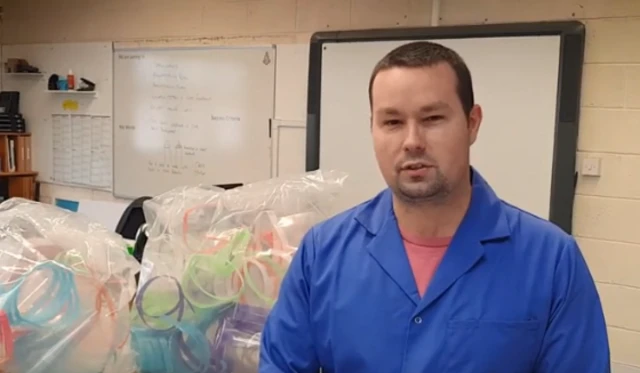 Image source, Strathallan School/YouTube
Image source, Strathallan School/YouTubeSchool teacher Craig Wiles, helped by volunteers, has made PPE for more than 100 key workers
A school teacher has made PPE for more than 100 key workers across Tayside after hearing about the difficulties they faced to get the right equipment.
Craig Wiles, a design and technology teacher at Strathallan School, and a team of volunteers designed and manufactured full face masks over the weekend.
He heard that some frontline workers were experiencing pain and blistering from wearing fabric masks for an extended period of time, so decided to design his own.
Mr Wiles said: "Having found designs for 3D printed ear guards, I realised there must be a simpler and more accessible way to produce these for even those without a 3D printer, which is when I came up with the idea for a laser-cut design.
"These can be produced at home – you don’t need a laser to cut them out, and you can use any sort of flexible plastic, like a thoroughly-washed milk carton, to cut out your own to support key workers where you are.”
 Douglas Fraser
Douglas Fraser
Scotland business & economy editor
 Image source, Dave Sands
Image source, Dave SandsStena ferries are making 150 people redundant and putting a further 600 on furlough, with full pay but no work to do, due to the downturn in passenger numbers.
The Swedish-owned company says it is planning for the long-term and may have to return to further cost-cutting.
It operates between Cairnryan in Scotland and Belfast, also between Ireland and other British ports, and with important links for freight and passengers across the North Sea.
It is not clear where the job cuts will fall, but they are expected to hit both shore-based and ferry crewing jobs.
David Cowan
BBC Scotland
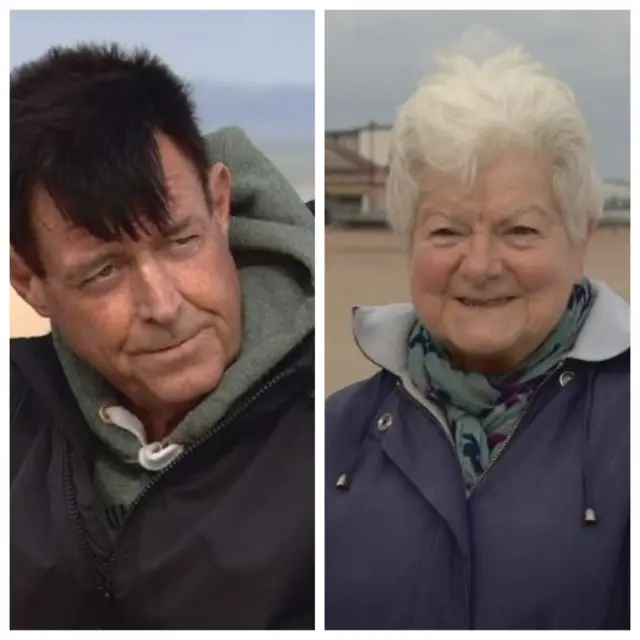
Kevin McCormick and Moria Turner
On a sunny, blustery day when the schools are off, the long stretch of beach and promenade at Portobello would be busy - instead only a few dozen dog walkers, joggers and cyclists were taking their daily exercise. Not a sand castle or ice cream in sight.
Secondary schoolteacher Kevin McCormick stopped to talk. For him, the hardest moment so far has been having to miss a funeral.
"I lost a dear friend who passed away in a Lanarkshire nursing home very recently, and of course not being immediate family, I couldn't attend the funeral,” he said. “It's been very very tough. I know and appreciate it's been tenfold, twenty fold all over.”
Seventy-three-year-old Moira Turner was walking a dog for her neighbour, who is in his 80s: "I think we're going to have to put up with this as long as necessary. I've had holidays cancelled. Our golden wedding anniversary, in a couple of months' time, everything has been cancelled. And he doesn't drink. I'll have to drink by myself."
Romance is proving difficult for the younger generation. Student Jack Hounsom is 21, bored and lonely: "I've just been trapped in the house. I managed to create a gym set-up to get some exercise but that's been it. I've not been able to see my girlfriend. That's been hard. It's been a couple of weeks now. I don't know how long it's going to go on for either."
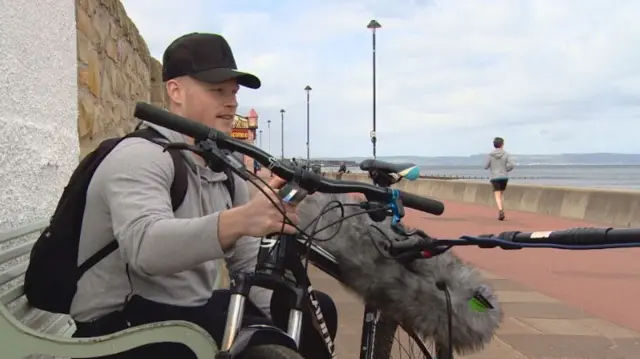
Jack Hounsom
Allow X content?
This article contains content provided by X. We ask for your permission before anything is loaded, as they may be using cookies and other technologies. You may want to read X’s cookie policy, external and privacy policy, external before accepting. To view this content choose ‘accept and continue’.
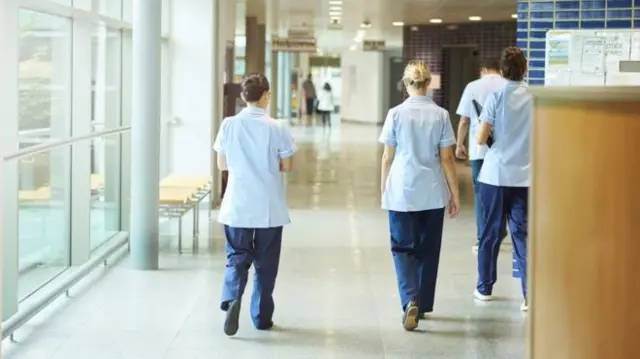 Image source, Getty
Image source, GettyMore than 500 student nurses from Glasgow Caledonian University have joined NHS Scotland’s national emergency response to the coronavirus pandemic.
The third-year undergraduates have started their inductions with health boards across the country to prepare them for working on the frontline.
Prof Jacqueline McCallum, head of GCU’s department of nursing and community health, said: “The students are well prepared, having developed their skills and knowledge by assessing and caring for a wide range of patients, including those whose conditions have been deteriorating.
"The clinical skills that the students have been developing are highly relevant to the current Covid-19 pandemic."
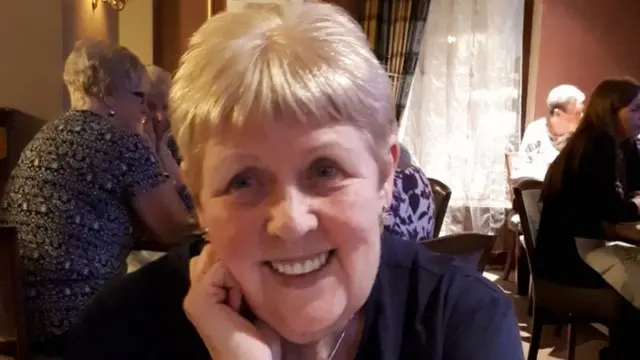 Image source, Family photo
Image source, Family photoThe family of a home care worker who died after contracting coronavirus have paid tribute to her.
Catherine Sweeney, from Dumbarton, is among 222 people who have died in Scotland after testing positive,
Her family released a statement, calling her a "wonderful mother, sister, and beloved aunty".
They thanked the doctors and nurses who "heroically looked after her" at the RAH Paisley.
They said: "Catherine was well known, and well respected within the community of Dumbarton, where she was born and raised. She was a caring and generous person, especially when it came to her time, having dedicated over 20 years of her life as a home carer to unfailing serving the needs of the most vulnerable in society.
"After a lifetime of service to the community, we know she will be sorely missed, not just by her loving family, but by many others for her incredible warmth, care, and dedication. A whole community shares in our grief."
Allow X content?
This article contains content provided by X. We ask for your permission before anything is loaded, as they may be using cookies and other technologies. You may want to read X’s cookie policy, external and privacy policy, external before accepting. To view this content choose ‘accept and continue’.
Allow X content?
This article contains content provided by X. We ask for your permission before anything is loaded, as they may be using cookies and other technologies. You may want to read X’s cookie policy, external and privacy policy, external before accepting. To view this content choose ‘accept and continue’.
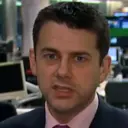 Kevin Keane
Kevin Keane
BBC Scotland environment correspondent
Environmental regulations that govern industrial sites in Scotland are to be relaxed in response to the coronavirus crisis.
The regulator Sepa says it will take a "proportionate and reasonable approach" to businesses struggling to meet the terms of their licences.
It is urging firms to prioritise measures which have a direct impact on the environment in favour of those which are administrative.
Sepa added sites which are deliberately flouting the rules will still be challenged.
 Image source, Getty
Image source, GettyPharmacists across Scotland have reported an increase in abusive and aggressive behaviour during the pandemic.
According to the Royal Pharmaceutical Society Scotland, they are dealing with "unacceptable behaviour" towards members of staff.
It says it has taken its concerns to Police Scotland to make sure all pharmacy teams are kept safe.
Golf's Open Championship, which was scheduled for Royal St George's, is the latest major sporting event to be cancelled due to Covid-19.
The tournament had been due to take place in Sandwich, Kent, between 13 and 19 July.
The sport's governing body, the R&A, has confirmed It will now be played between 11 and 18 July 2021.
The news means the 150th championship, which was set for the Old Course in St Andrews, Fife, next summer will now be held from 10 to 17 July 2022.
Allow X content?
This article contains content provided by X. We ask for your permission before anything is loaded, as they may be using cookies and other technologies. You may want to read X’s cookie policy, external and privacy policy, external before accepting. To view this content choose ‘accept and continue’.
Quote MessageWe appreciate that this will be disappointing for a great many people around the world but we have to act responsibly during this pandemic and it is the right thing to do.
Martin Slumbers, Chief executive of the R&A
The Scottish government has confirmed work on construction sites, unless they are for essential projects, should stop immediately.
New guidance published online, external makes clear projects should cease unless they are supporting crucial work during the Covid-19 pandemic.
Allow X content?
This article contains content provided by X. We ask for your permission before anything is loaded, as they may be using cookies and other technologies. You may want to read X’s cookie policy, external and privacy policy, external before accepting. To view this content choose ‘accept and continue’.
Quote MessageIn this public health emergency it is vital that all businesses act responsibly and align fully with the social distancing measures introduced to protect the nation’s heath, well-being and economic future.
Fiona Hyslop, Scottish Economy Secretary
The problem with flattening the curve is that it often leads to a second or even third peak, Prof Allyson Pollock says.
"We know this from the big flu epidemics - the 1918 Spanish influenza flu epidemics - that the second wave was even more severe than the first wave."
She stresses the importance of tracing the contacts of those who are infected so that every case in the community can be identified.
Where are we on the curve? It's very hard to tell, Professor of Public Health Allyson Pollock, tells John Beattie.
She says that instead of thinking of the pandemic as one global outbreak, we should treat it as lots of little outbreaks - with "enormous variation" across the country, each at a different stage of the epidemic.
"We should think of this as lots of local epidemics that need tackling locally with local action plans", she added.
BBC Political Editor Laura Kuenssberg asks how the PM can be well enough to run the country if he is unwell enough to be in hospital.
Dominic Raab says the PM was admitted to hospital for tests "as a precaution" because of persistent symptoms.
But he repeats Mr Johnson had a "comfortable night" and is "still in charge".
Asked about the lockdown measures in place, Professor Dame Angela McLean says they need a "good long time series of data on all stages of infection to tell the impact of the measures".
She adds: "It is too early to tell yet. We need people to carry on following those instructions so we can work out three weeks later what happens in hospital."
Mr Raab adds that this is the "overriding focus of the government right now".
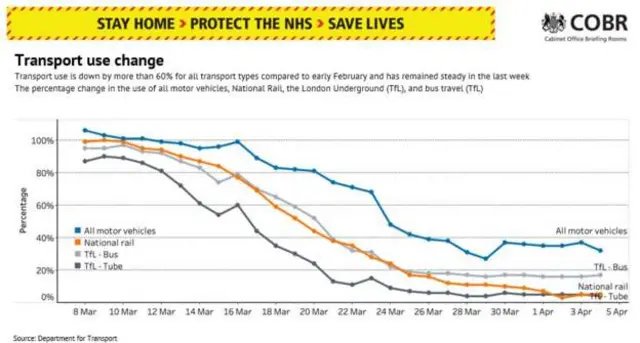 Image source, Downing Street
Image source, Downing StreetProf Angela McLean, chief scientific adviser for the Ministry of Defence, says national rail usage has fallen to less than 20% of the levels in February.
The efforts people are making to stay at home "are working", she says.
Hospital admittance is "not as bad as it would have been" if the measures had not been introduced, she adds.
However, she also says it will take some time for lower hospital admissions to filter through into lower numbers of deaths.